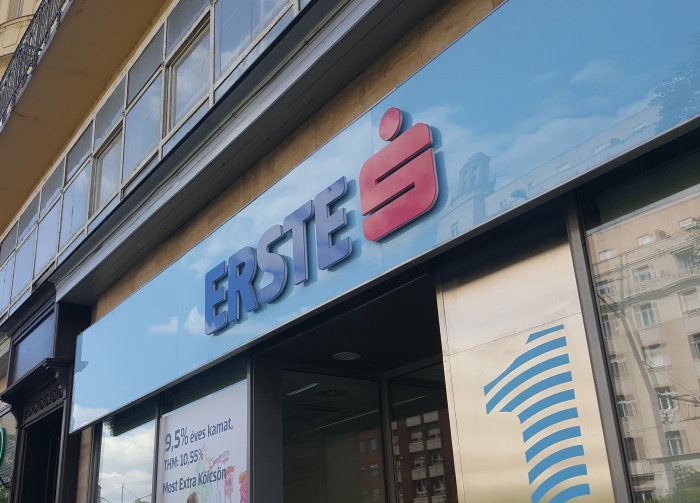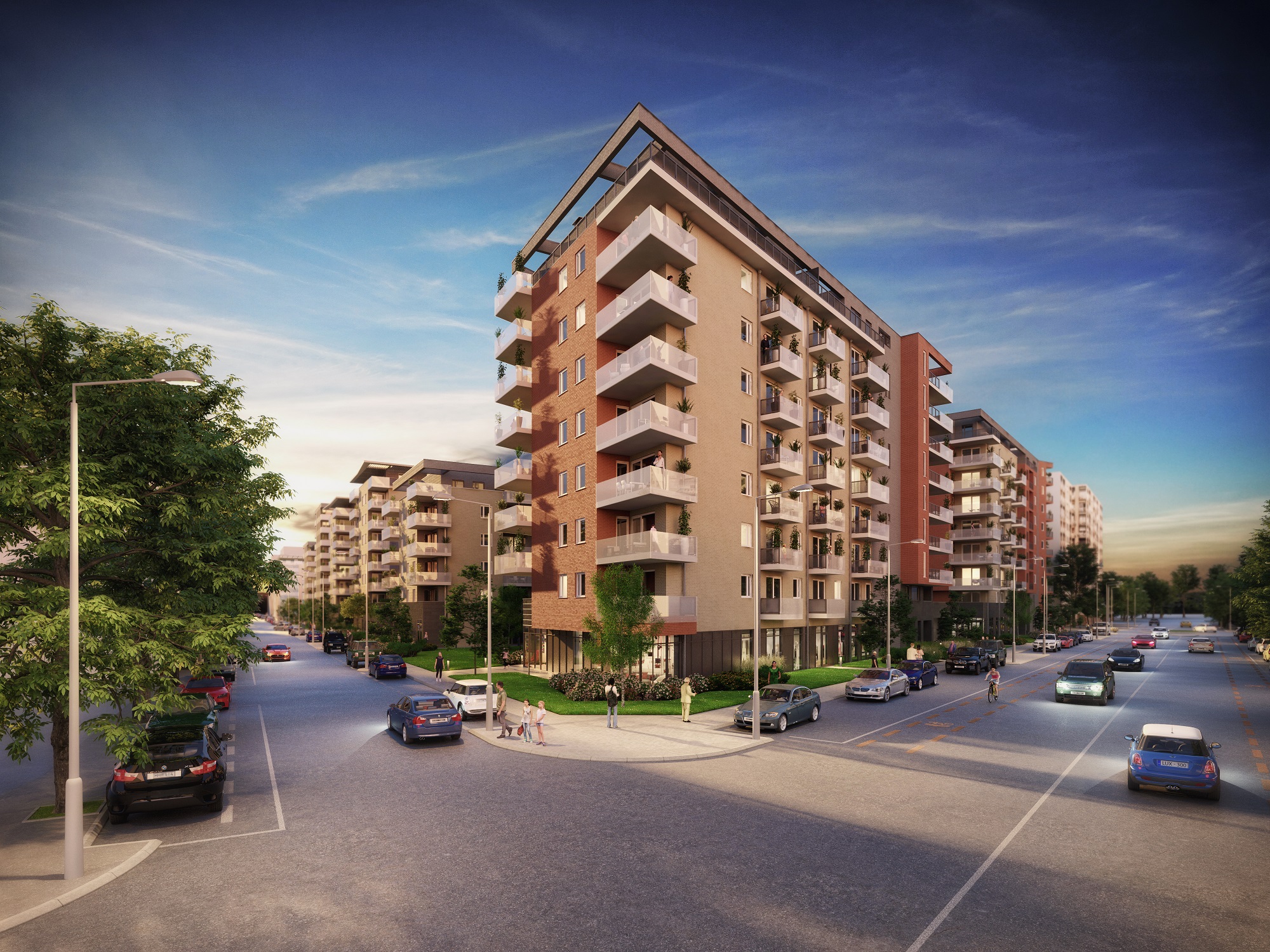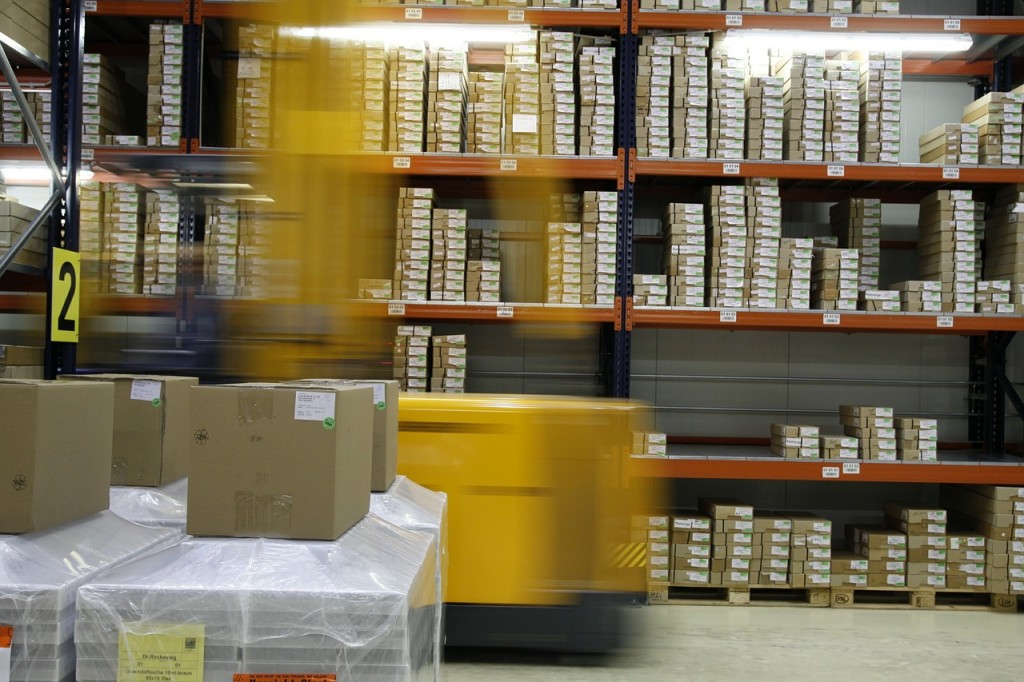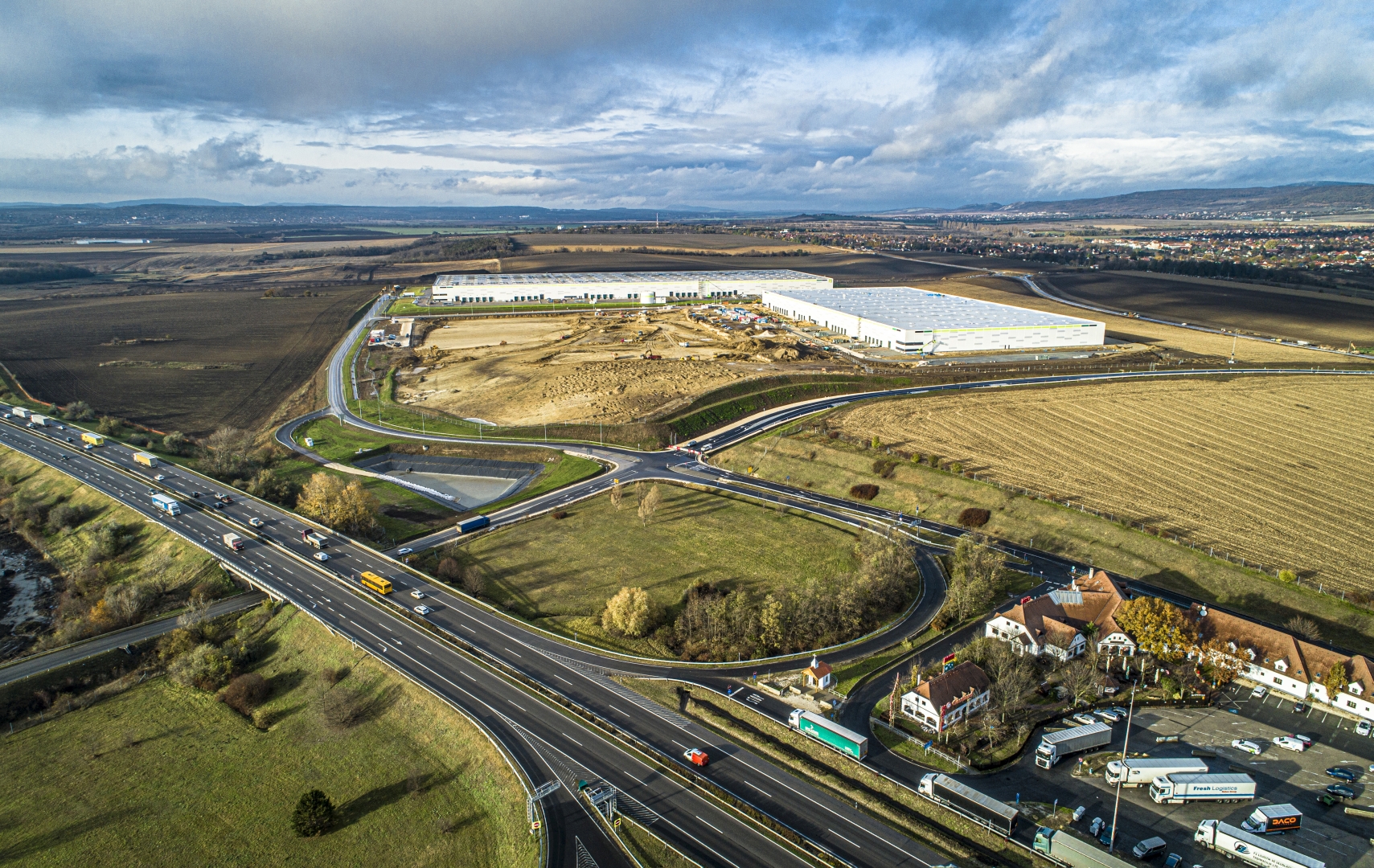Provincial Hubs Beginning to Grow in Secondary Cities
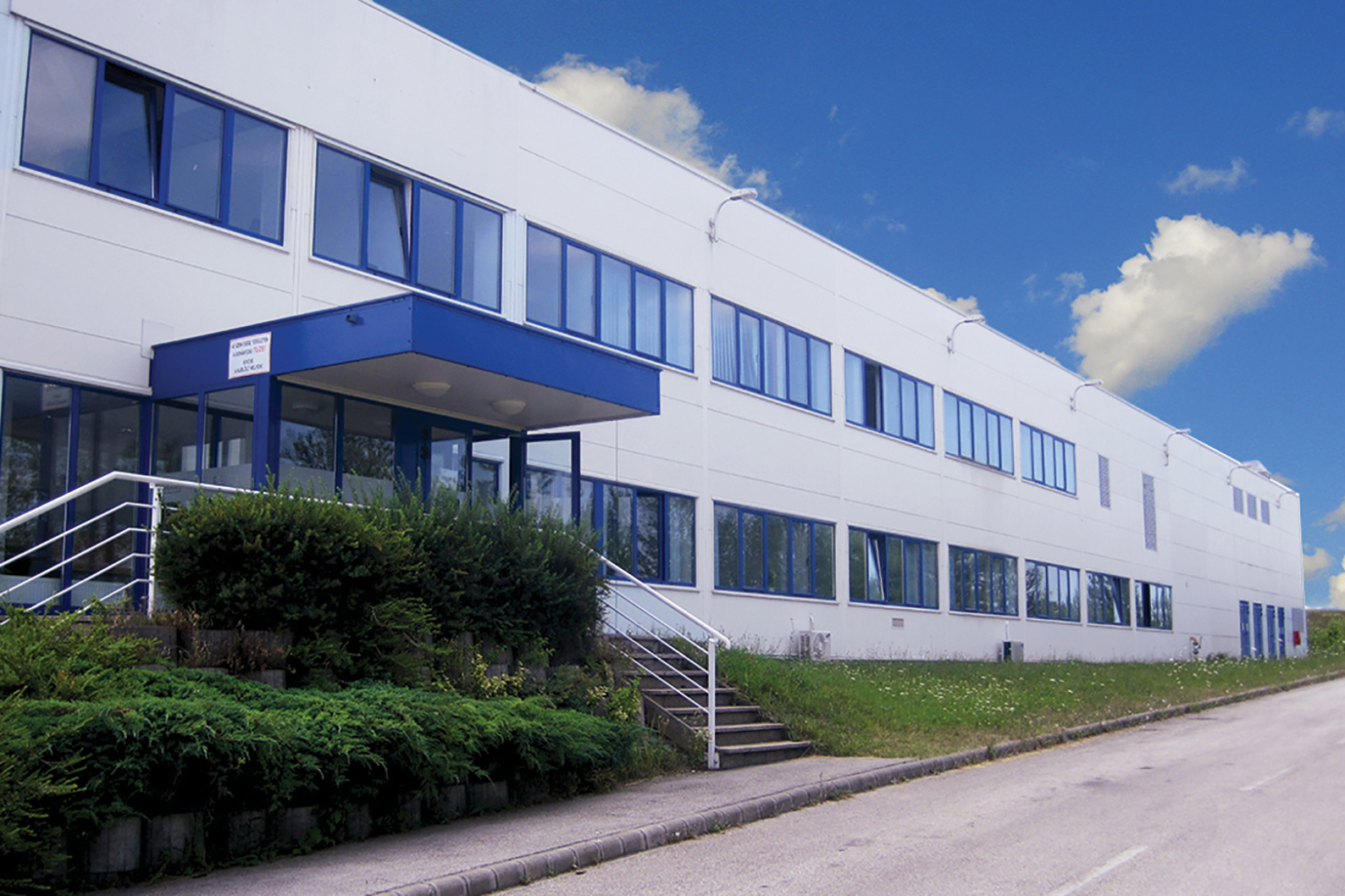
CTPark Tatabánya is one of the secondary sites developing away from the Hungarian capital.
Developer-led industrial development is finally extending to regional hubs across Hungary as in other Central European countries. With total stock for the sector having reached 4.58 million sqm in Hungary, 70% of it is located in the Greater Budapest area, according to Cushman & Wakefield.
A further 1.4 million sqm of manufacturing and logistics space is now in regional centers, with more logistics and particularly light industrial development expected outside of the capital. The industrial market is, therefore, developing on a national model.
Regional hubs are seen as a magnet for global car manufacturers and related industries, with significant investment flowing into electric vehicle production and battery manufacturing facilities. However, the majority of developments outside the capital still tend to be owner-occupied projects.
CBRE has traced 540,000 sqm of industrial space under construction in Hungary, the majority of which, some 450,000 sqm, is under development in the Greater Budapest area. Most of the pipeline is being constructed on a built-to-suit (BTS) basis.
CTP, HelloParks and Prologis are currently the leading industrial developers in Hungary, mainly around the capital. The National Industrial Park Operator and Developer (NIPÜF) is the largest developer in secondary hubs. More on this later.
The buildings beyond Budapest are very limited in terms of modern stock, comments Gábor Borbély, director of research and business development at CBRE Hungary. However, development activity is now extending to hubs in provincial centers, a development that has been seen elsewhere in Central Europe for several years.
Countryside E-catalyst
In contrast to Hungary’s Visegrád Four peers, the Czech Republic, Poland, and Slovakia, a functioning commercial industrial/logistical market was not operating outside the capital until recently. Those companies establishing light industrial facilities tended to develop owner-occupied facilities. The automotive sector, in general, and increasingly EV and battery manufacturing, has been a critical catalyst in the development of secondary hubs across Hungary.
“Hungary is undergoing a natural development in the countryside thanks to the stable and substantial inflow of FDI. These locations already have a significant industrial presence, but speculative, developer-based projects are still rather scarce,” says Gábor Halász-Csatári, head of industrial agency at Cushman & Wakefield.
“Apart from some active international and national developers, the risk-to-return ratio is still relatively high, or at least viewed as higher than in Budapest, and as a result, most projects are BTS based,” he explains.
“There are, however, some more active, risk-accepting developers on the market looking at existing hubs (Győr, Kecskemét, Tatabánya) and exploring opportunities in new frontiers (such as Miskolc, Nyíregyháza, and Debrecen). We forecast that thanks to the huge automotive and battery-related investments in the region, these locations will become more and more attractive for national and international developers alike,” Halász-Csatári says.
“Demand for Budapest and its vicinity has slowed somewhat; we find that transactions take longer to manifest, large requirements are less frequent, although smaller SME-led inquiries have returned to the market,” he says.
Eastern Hotspot
“It’s as if the economic and political instability in the region has reached large companies and service providers later, and we are experiencing a delayed reaction. Regionally, Debrecen is the clear hotspot and eastern Hungary in general, naturally caused by the mega investments of BMW, Catl, W-Scope, EVE Energy and the like,” Halász-Csatári adds.
The Hungarian Infogroup has an industrial portfolio of 100,000 sqm located mainly in eastern and central Hungary. “Our focus has been and still is on regional cities in Hungary,” says Balázs Czifra, director of sales, asset and business management at the firm. He sees continuing strong demand in logistics driven by e-commerce and growing demand for manufacturing and light industrial facilities.
The state-owned NIPÜF has a land bank that covers significant provincial cities across Hungary. The company aims to deliver logistics centers, manufacturing halls and warehouses in areas not provided for by the market.
Development is generally undertaken on a BTS basis with long-term leases of at least five years for spaces of at least 10,000-15,000 sqm. The company has development land in 18 locations throughout the country. Although NIPÜF is state-owned, it insists its activities are conducted on a market basis.
Another leading CEE industrial park developer and operator, CTP, has a policy of developing in both capital cities and leading secondary logistics and industrial hubs throughout the region. The company has just concluded 31,000 sqm in logistics deals at CTPark Budapest West, near the Hungarian capital, and CTPark Komárom, some 95 km northwest by road, close to the border with Slovakia. At the latter park, a transaction for 12,500 sqm of logistics and 4,250 sqm of office space has been concluded.
One of the significant natural advantages of Hungary has always been its geographical location as a continental meeting point, as Halász-Csatári of Cushman & Wakefield points out.
Three European Network routes run through the country, the principal one being the Rhine-Danube Corridor, from the Slovakian border to Budapest. From that, two other branches are formed: The East-Med Corridor goes from Slovakia to the Romanian border via Budapest, while the Mediterranean Corridor runs from the Croatian border northeast to Ukraine, again, via Budapest.
This article was first published in the Budapest Business Journal print issue of July 14, 2023.
SUPPORT THE BUDAPEST BUSINESS JOURNAL
Producing journalism that is worthy of the name is a costly business. For 27 years, the publishers, editors and reporters of the Budapest Business Journal have striven to bring you business news that works, information that you can trust, that is factual, accurate and presented without fear or favor.
Newspaper organizations across the globe have struggled to find a business model that allows them to continue to excel, without compromising their ability to perform. Most recently, some have experimented with the idea of involving their most important stakeholders, their readers.
We would like to offer that same opportunity to our readers. We would like to invite you to help us deliver the quality business journalism you require. Hit our Support the BBJ button and you can choose the how much and how often you send us your contributions.


